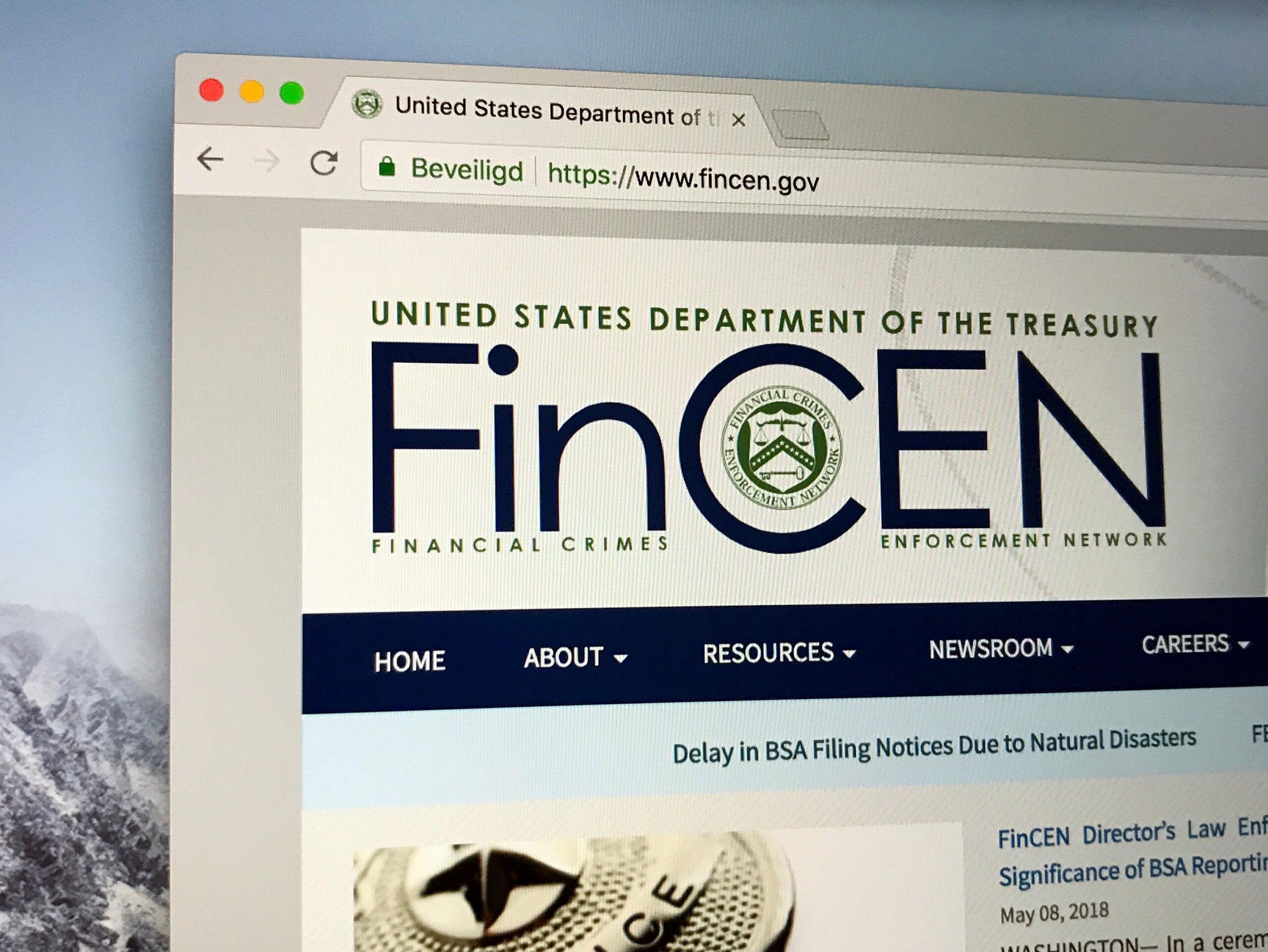
The 2024 Corporate Transparency Act: Q & A
On January 1, 2024, a new law goes into effect that will require virtually all U.S. businesses not already subject to federal ownership reporting requirements to report this information to the federal government. This is a new program designed to help U.S. authorities combat money laundering. Existing companies will have a year to comply, but companies formed during 2024 will have to report ownership information within 90 days.
The following is a Q&A prepared by the Scopelitis Corporate Structuring & Strategy Practice.
What is the Corporate Transparency Act?
As part of Congress’ Anti-Money Laundering Act of 2020, the Corporate Transparency Act (CTA) establishes uniform beneficial ownership information (BOI) reporting requirements for certain types of corporations, limited liability companies, and other similar entities created in or registered to do business in the United States. The U.S. Department of Treasury’s Financial Crimes Enforcement Network (FinCEN) division has issued a final BOI reporting rule, which describes who must file a BOI report and what information must be reported, which varies depending on the date the entity is created or registered in the United States.
What happens on January 1, 2024?
Starting January 1, 2024, many domestic and foreign companies will be required to begin filing BOI reports with FinCEN under the CTA.
- Companies subject to reporting requirements (Reporting Companies) and created or registered prior to January 1, 2024, are required to file their initial BOI report by January 1, 2025.
- Reporting Companies formed during 2024 are required to file their initial reports within 90 calendar days of creation or registration.
- Reporting Companies formed after 2024 are required to file reports within 30 calendar days of formation.
Who does the CTA apply to?
The CTA includes 23 exemptions to the reporting requirements; these exemptions generally apply to larger, more heavily regulated entities that are likely already subject to other ownership information reporting requirements (e.g., governmental authorities, banks, publicly traded companies, credit unions, insurance companies, public utilities, certain non-profit entities, among others). In other words, the CTA is structured to target small businesses.
What information must be reported?
Reporting Companies must disclose certain personal information of each “beneficial owner” and “company applicant” to FinCEN.
A “beneficial owner” is any individual who, directly or indirectly, either exercises “substantial control” over the Reporting Company or who owns or controls a 25% “ownership interest” in the Reporting Company. Both terms are further defined in the Final Rule.
A “company applicant” is any individual who directly files the document that creates the domestic Reporting Company or registers the foreign Reporting Company and the individual who is primarily responsible for directing or controlling such filing if more than one individual is involved in the filing.
What next steps should companies consider?
Companies should take steps now to determine whether they are subject to the CTA’s January 1, 2025 reporting requirement.
- If companies are created or registered during 2024, you should be mindful of the 90-day reporting requirement. Companies should assess whether CTA’s reporting requirements apply as soon as possible.
- Companies should also begin to develop internal CTA compliance policies, appoint someone within the company who will be responsible for overseeing compliance efforts, and monitor ongoing reporting requirements.
Scopelitis is available to assist businesses in complying with these new requirements. Contact Greg Feary, Jay Robinson, Todd Metzger, Katie Feary-Gardner, or J.D. Robinson with questions.
News from Scopelitis is intended as a report to our clients and friends on developments affecting the transportation industry. The published material does not constitute an exhaustive legal study and should not be regarded or relied upon as individual legal advice or opinion.

The 2024 Corporate Transparency Act: Q & A
On January 1, 2024, a new law goes into effect that will require virtually all U.S. businesses not already subject to federal ownership reporting requirements to report this information to the federal government. This is a new program designed to help U.S. authorities combat money laundering. Existing companies will have a year to comply, but companies formed during 2024 will have to report ownership information within 90 days.
The following is a Q&A prepared by the Scopelitis Corporate Structuring & Strategy Practice.
What is the Corporate Transparency Act?
As part of Congress’ Anti-Money Laundering Act of 2020, the Corporate Transparency Act (CTA) establishes uniform beneficial ownership information (BOI) reporting requirements for certain types of corporations, limited liability companies, and other similar entities created in or registered to do business in the United States. The U.S. Department of Treasury’s Financial Crimes Enforcement Network (FinCEN) division has issued a final BOI reporting rule, which describes who must file a BOI report and what information must be reported, which varies depending on the date the entity is created or registered in the United States.
What happens on January 1, 2024?
Starting January 1, 2024, many domestic and foreign companies will be required to begin filing BOI reports with FinCEN under the CTA.
- Companies subject to reporting requirements (Reporting Companies) and created or registered prior to January 1, 2024, are required to file their initial BOI report by January 1, 2025.
- Reporting Companies formed during 2024 are required to file their initial reports within 90 calendar days of creation or registration.
- Reporting Companies formed after 2024 are required to file reports within 30 calendar days of formation.
Who does the CTA apply to?
The CTA includes 23 exemptions to the reporting requirements; these exemptions generally apply to larger, more heavily regulated entities that are likely already subject to other ownership information reporting requirements (e.g., governmental authorities, banks, publicly traded companies, credit unions, insurance companies, public utilities, certain non-profit entities, among others). In other words, the CTA is structured to target small businesses.
What information must be reported?
Reporting Companies must disclose certain personal information of each “beneficial owner” and “company applicant” to FinCEN.
A “beneficial owner” is any individual who, directly or indirectly, either exercises “substantial control” over the Reporting Company or who owns or controls a 25% “ownership interest” in the Reporting Company. Both terms are further defined in the Final Rule.
A “company applicant” is any individual who directly files the document that creates the domestic Reporting Company or registers the foreign Reporting Company and the individual who is primarily responsible for directing or controlling such filing if more than one individual is involved in the filing.
What next steps should companies consider?
Companies should take steps now to determine whether they are subject to the CTA’s January 1, 2025 reporting requirement.
- If companies are created or registered during 2024, you should be mindful of the 90-day reporting requirement. Companies should assess whether CTA’s reporting requirements apply as soon as possible.
- Companies should also begin to develop internal CTA compliance policies, appoint someone within the company who will be responsible for overseeing compliance efforts, and monitor ongoing reporting requirements.
Scopelitis is available to assist businesses in complying with these new requirements. Contact Greg Feary, Jay Robinson, Todd Metzger, Katie Feary-Gardner, or J.D. Robinson with questions.
News from Scopelitis is intended as a report to our clients and friends on developments affecting the transportation industry. The published material does not constitute an exhaustive legal study and should not be regarded or relied upon as individual legal advice or opinion.




